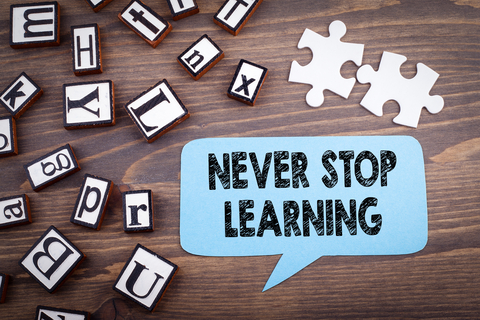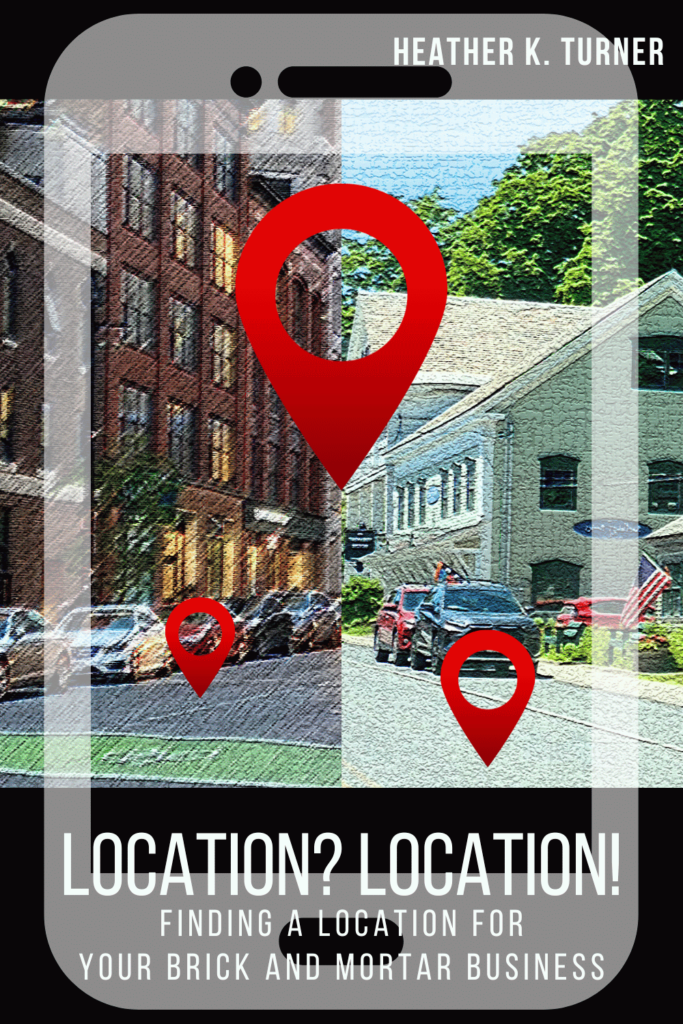 I recently did a Toastmasters two-part speech project and thought it would make a good blog post. The project was to give a speech and then give the speech again based on the first speech’s evaluation.
I recently did a Toastmasters two-part speech project and thought it would make a good blog post. The project was to give a speech and then give the speech again based on the first speech’s evaluation.
I ended up giving this short speech to three different Toastmasters clubs, one club is the club I am coaching, and the feedback I got from all of them was pretty interesting.
In all three meetings, heads nodded, and the comments afterward were, “Yes, we have ourselves done all of these things, both personally, in business and leadership situations.” I know I have as well in the past and have tried my best to cut them out.
Dan Rockwell has been one of my favorite blog writers for years and most definitely one of my most favorite leadership article writers. His posts don’t always have the answers and the solutions to things, but they make you THINK!
From a leadership perspective, that is invaluable because there are no perfect solutions to leadership issues.
Every situation is unique, and what works for one doesn’t necessarily work for another.
Gaining some insights about how people react and stimulating your brain into thinking about scenarios that may happen or have already happened gives you an awful lot of insight into yourself and how you deal or would deal with things that may come up.
He recently wrote a blog post, 12 Things Smart Leaders Don’t Say, and it really got the wheels turning a bit more than usual.
His blog has 12 questions, but I cut it down to six (technically seven because I combined two) for two reasons, my first speech when I based it on my additional commentary to his questions was too long (almost 12 minutes instead of the target 5-7), and when I started to rewrite it, I found that these questions resonated with me more than the others, mostly because they made me “think” about them more myself.
Question #1.
Dan writes: Don’t say, “You should have. Why didn’t you? and “I should have”
He comments: ‘Should have’ is backward facing. Do your best to speak into the future.
Instead of shoulding-yourself, say, “Next time.”
I’m adding to this, “YOU should have” is very negative, it’s a blame game, and something parents do to guilt their kids and makes people feel small and insignificant. “Next time” is a great starter, but adding, “Let’s try this next time” is even more encouraging.
In leadership, it’s also worth considering that maybe the “you should have” is really on you for not providing enough information or direction to the person that “should” have done something. Is it that person’s “fault” something went sideways, or was it your own?
From a leadership perspective, I think of all of the questions, this should be the biggest takeaway for people in management. Is it “really” an employee’s fault or ?
Question #2. (Dan’s #3)
Dan writes: Don’t say: What can we do about that?
He comments: ‘We’ is a tiny act of cowardice that softens the blow of responsibility.
“What could ‘you’ do next,” is better than, “What could ‘we’ do next?” (Unless you are planning to actively participate.)
It’s insincere to say ‘we’ when you really mean ‘you’.
I’m adding to this, Toastmasters tries to teach us to say “we” because it’s inclusive and that’s what leaders are supposed to say, but too often leaders, both in organizations and in business, say “we” but leave the actions and the follow-up to others, most often the ones that need the help most.
Leaving someone hanging is passing the buck, and it’s saying it’s not that leader’s problem. If you are truly going to say “we,” MEAN it and participate. Please don’t put it on someone else.
If you say “you,” then follow up and give the person or the group some tools and directions to fix the problem or issue and the ability and assistance to solve it, don’t just leave them hanging in the wind.
Question #3. (Dan’s #4 & #5)
Dan writes: Don’t say: It’s simple AND It’s easy.
He comments: What’s simple to you is often difficult for others. Judge people through the lens of their experience and strength, not yours.
I run into this all the time. In Toastmasters, Pathways is a good example. I think it’s easy, I’ve also been using it since it literally first rolled out, and I’m in the interface several times per week. For many others, it’s not easy, and when you don’t use something all the time, it’s not “simple.”
I hear marketing people say this all the time about using social media, and it drives me bonkers. “It’s so simple, and it’s SOOOOO easy to do.”
Well that’s because they swim in it all day long, for business people who actually have other things to do, like run their businesses, it’s not easy, it’s not intuitive, there are no big red buttons and guides that say do this, do that to proceed to the next step.
It’s also a belittling comment because it makes people think they are not smart enough for not “getting” something that is according to someone else “easy” or “simple.”
When I do SCORE mentoring, I also run into this quite a bit with clients who are frustrated that they don’t “get” social media, website development, or SEO and have been told by someone else that it should be easy.
Why should they get it? It’s not their fields, yet some marketers out there make people feel small by saying things like, “oh, that’s easy, you shouldn’t have any problem with it.”
I don’t know how many times I’ve caught myself starting to say that and then booted myself into a reality check. And I freely admit, I used to be guilty of saying this to people myself and had a massive wakeup call a couple of years ago.
Question #4. Dan’s #8
Dan writes: Don’t say: Don’t you agree?
He comments: Questions that begin with ‘don’t’ insult people’s intelligence and pressure them to agree. Who’s going to say, “No,” when you ask, “Don’t you agree?”
Don’t you agree is also pressure on people to “make” them agree, so they feel like they are a part of the group, it goes back to the comment “You should have” it’s not just insulting to people and pressuring them, it’s also giving a guilt trip (funny how guilt trips come up twice in things we shouldn’t be saying, and how learned mannerisms as well as phrases creep into our speech as adults). A good alternative is “what do you think? I value your opinion and your experience or expertise.”
Don’t you agree it is a lot like “With all due respect”….. Every time I hear someone say that I cringe, because I have rarely heard anyone say that and then not completely tear apart or disregard the other person’s opinion. I’d add that to the list of things that Leaders should probably stay away from saying.
Question #5. Dan’s #10
Dan writes: Don’t say: But
He comments: Never say ‘but’ after saying something good. Try using ‘and’ when you’re tempted to use ‘but’.
‘But’ is an eraser.
But is not only an eraser but also a contradictor, You did a great job with your speech, and I really like the examples BUT>>>>>>>>>>>> Terrific job with that presentation and you really impressed the client BUT>>>>>>>>>>>>
In Toastmasters But is a filler word, as is And, but the grammarian and ah counter are more likely to flag you on But as a filler word because it doesn’t lead into anything else, it contradicts and it fills space where it doesn’t have to.
I agree that AND is a good substitute. Think of it in the context of doing an evaluation, or giving feedback to an employee, “Here are some great things about your speech AND here is a little bit of room for improvement. Fantastic job with that report, I particularly appreciated you including next year’s financials AND maybe next time can we add an additional 6 months worth?
Question #6. Dan’s #12
Dan writes: Don’t say: Nice job.
He comments: Be specific, not vague, when giving compliments. What was ‘nice’ about it?
That was a really “nice” speech, Eh? What does that mean? Was it sugar and spice and everything nice? Was it nicely wrapped in a box with a pretty bow? It was nice, because………………… ?
I used to work with a fellow chef at a resort with multiple restaurants that was always saying to his staff, “Nice Job, Nice Job.” His employees used to mock him for it because he would never give specifics, and it came across as insincere. He thought from a leadership perspective it sounded good to say that to staff, and it became like an automatic reflex, but his employees hated it.
Give some specifics, “Nice job with that catering order today, the clients were really happy with everything, and the bride especially liked the vegetable canapes.”
What we say as leaders defines us, and we can either help lift people up or drag people down, and being cognizant of what we say and how we say it makes us a good leader or someone who has some work to do.
Sometimes little things like wording both verbally and written can make a huge difference especially when giving feedback to someone.
Original post here and CC License for Mr. Rockwell’s post attribution.



Thank you Janice, Thank you is such an underused word and agree its a great comment when sincere. 🙂 Cheers!
Thanks Heather! Good food for thought. Totally agree that “With all due respect. . . ” is the wrong approach. I have heard it a million times, and the results are always the same. The comment “Thank you for your feedback” is good if it is sincere. I have found that thanking people for their efforts on a regular basis helps with team building.